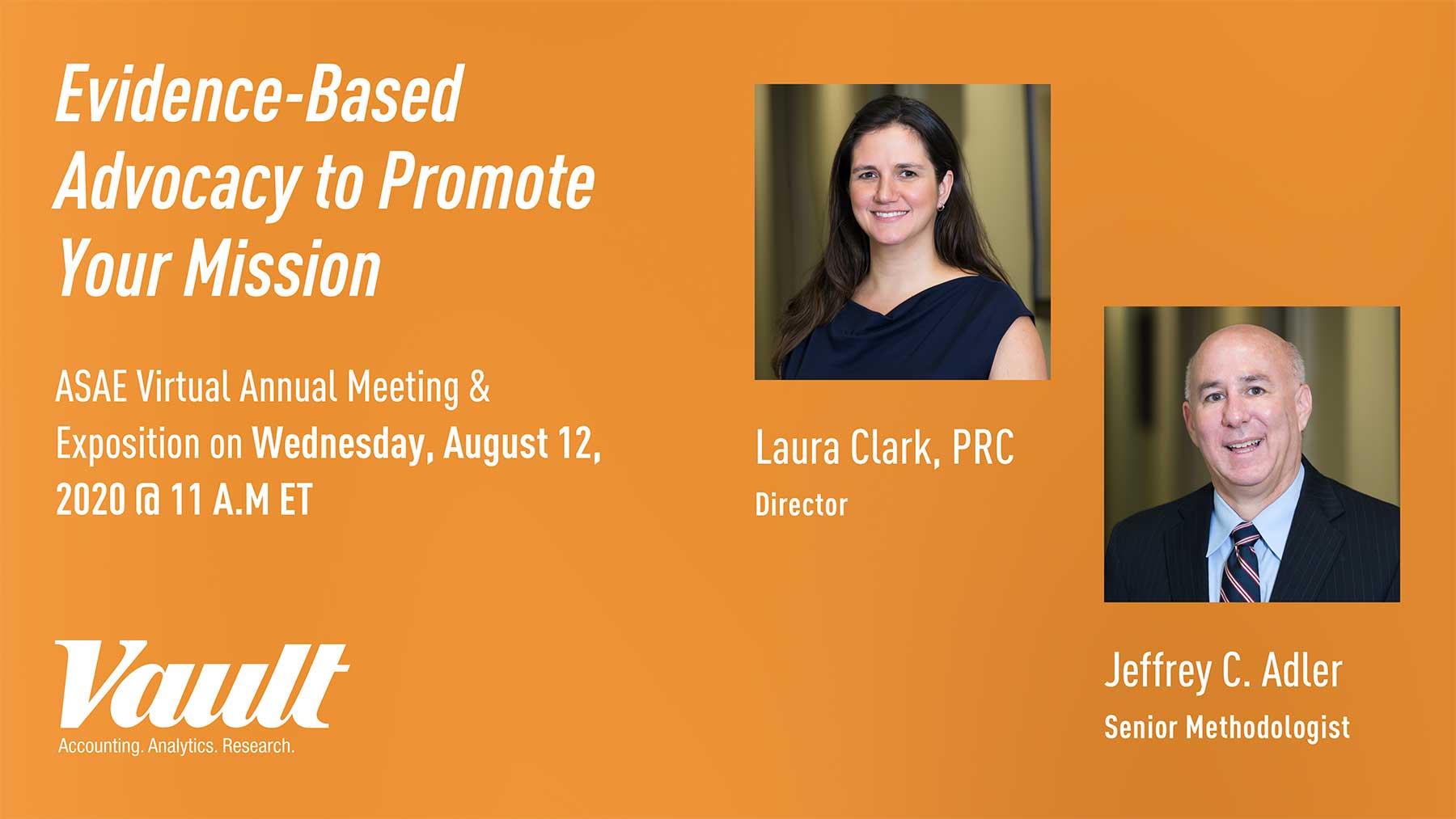
Attend Vault’s Presentation on Evidence-Based Advocacy at ASAE Virtual Annual Meeting & Exposition on Wednesday, August 12, 2020 @ 11 A.M.
Join our Director of Primary Market Research, a former United Way marketing professional, alongside Jeff Adler, Senior Methodologist and an annual guest lecturer in Marketing Research at The Wharton School, to hear about evidence-based advocacy.
In the past, the research colleagues have led nation-wide research efforts to draw up a report that is now used as the primary resource for an American Diabetes Association (ADA) campaign on the price of insulin. The data Vault gathered was used in an advocacy paper on the subject and presented to a Senate Committee by ADA’s Chief Medical Officer.
In this presentation, attendees will get a behind-the-scenes view of the work and thinking that goes into important research programs that are designed to support evidence-based advocacy campaigns or internal buy-in for strategic advocacy agendas within organizations.
Attendees will see the difference between demonstrating objective and sound messaging rather than emotionally driven narratives along with discovering the importance of using reverse-engineering to help identify research goals prior to launching a program.
According to Adler, “so many folks doing this sort of research will just start with a brainstorming idea of things that they can research, and after they collect the data, people sit around saying, ‘what did we get?’”
Through various case studies, Clark and Adler will unravel the process and procedures Vault has used to bring evidence-based advocacy research to light. The pair will dissect organizations’ end goals, the ways data were collected or aggregated, multiple audience considerations, reasons for selecting particular methodologies, and examples of how to ask balanced and unbiased questions. By diving into these topics while referencing them to particular case studies, audiences will be able to interpret the design-thinking behind each research program based on specific projects.
In a virtual world, it’s hard to keep people engaged when there are a million other things they can be doing at their computer.
Before the pandemic struck, the original presentation was going to be a 90-minute gathering that resembled a lecture followed by breakout groups. However, now it will take form in a pre-recorded session lasting about 45 minutes.
During the pre-recorded presentation, Clark and Adler will be available LIVE for a Q&A chat. People planning to attend are encouraged to drop information in the chat feature about current or upcoming advocacy research challenges.
Because the original plan was to have break-out groups as part of the session, the presenters decided to open up virtual rooms for roundtable discussions, set to take place within a few weeks after the presentation, highlighting the importance of peer-to-peer connections as part of the learning process.
“We’re all operating in a time where we don’t have enough opportunities to connect with colleagues. Even though it’s virtual, we’ll continue to foster those connections by hosting the roundtables,” states Clark.
The virtual round table discussions will be an opportunity for groups of 6-8 participants to talk through current challenges, brainstorm solutions, and share lessons learned on previous advocacy research initiatives. Virtual roundtables will be open to ASAE presentation attendees only.
As each association has different organizational structures, some complete with an advocacy department and others leaving the role of research affairs to membership marketing directors, Vault welcomes any participant to the lecture.
Associate executives would likely benefit the most; however, “members are counting on their association to advocate for the industry or the members’ interest—which can fall on anyone in the association,” notes Clark.
